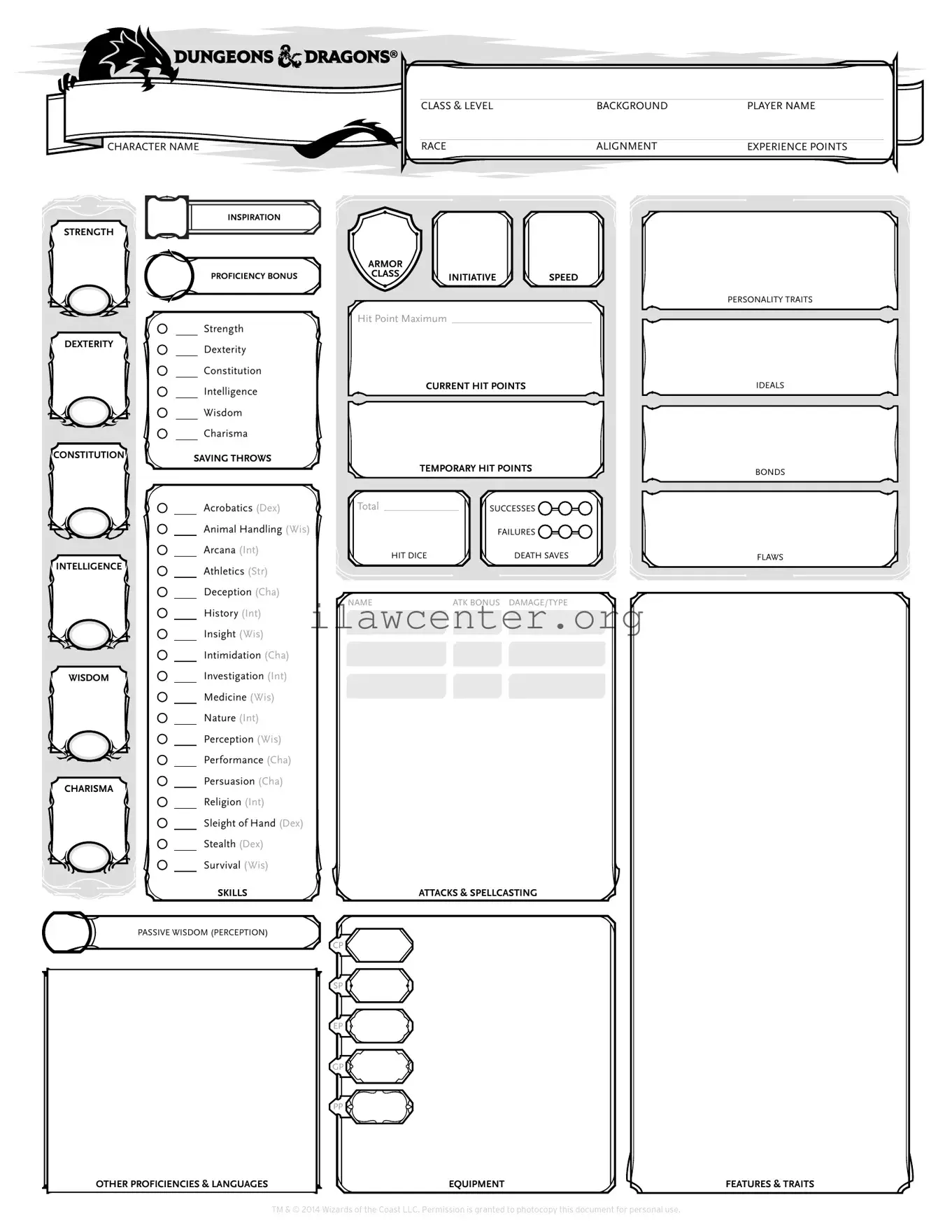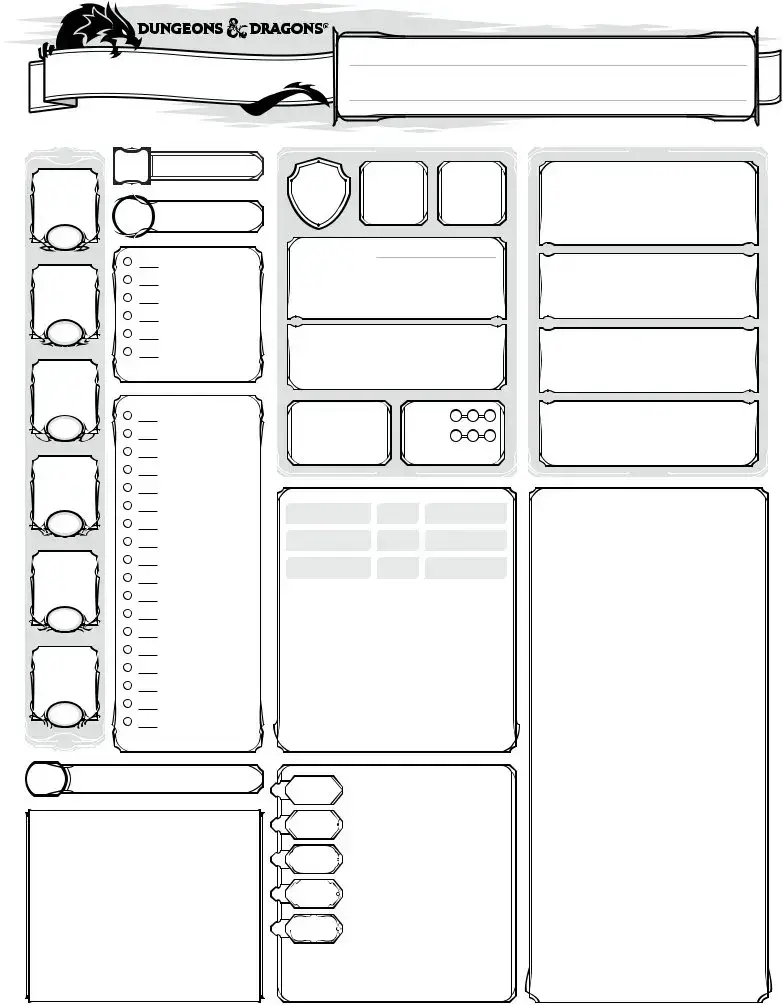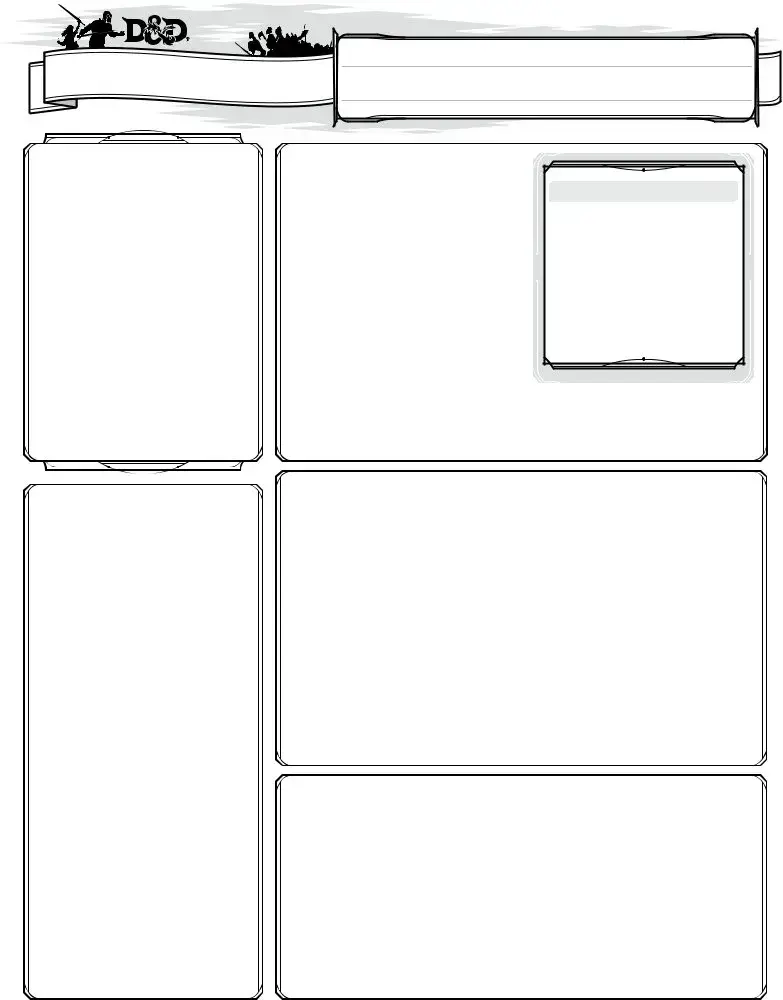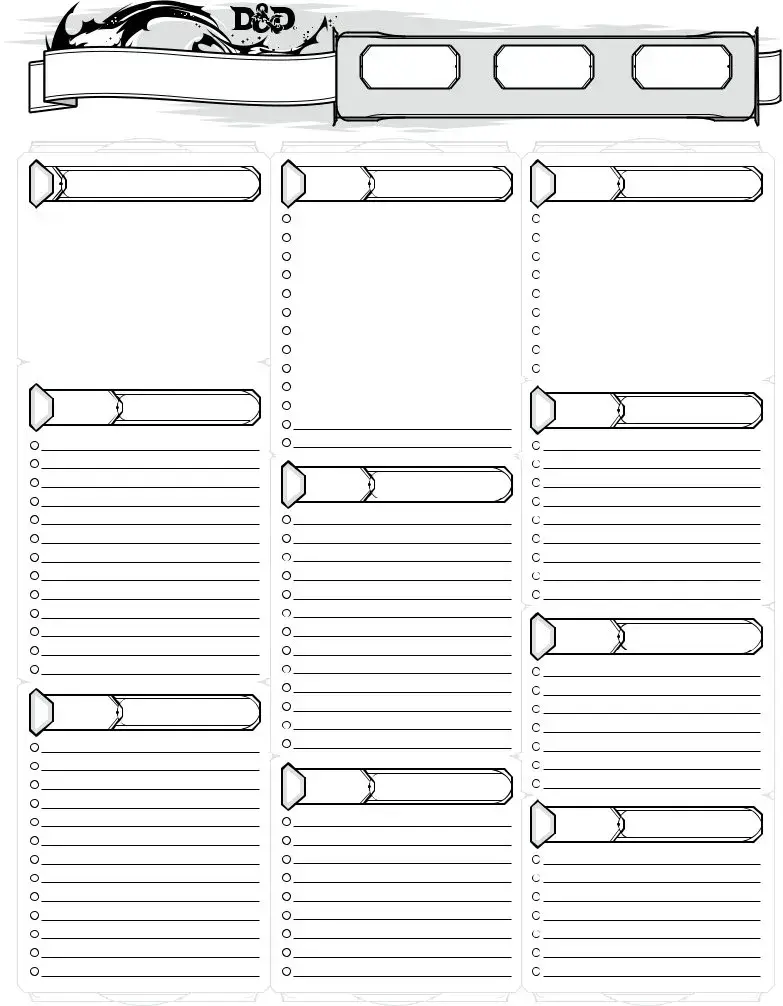What is a D&D Character Sheet?
A D&D Character Sheet is a detailed document used by players to track the abilities, statistics, equipment, and backstory of their character in Dungeons & Dragons. This sheet serves as a permanent record of your character's progression as you advance through campaigns, making it an essential tool for both new and experienced players.
How do I fill out a Character Sheet?
To complete your Character Sheet, you will need to provide information about your character's race, class, abilities, and background. Start by choosing your character’s race and class, as these elements will determine many of your character’s skills and abilities. Once you have that down, fill in your ability scores, which reflect your character's physical and mental attributes. After scoring, you can add features, skills, and spells based on your class and race. Don’t forget to note your character's equipment and inventory!
What are ability scores, and why are they important?
Ability scores represent a character's innate capabilities, affecting how they interact with the game world. These scores—Strength, Dexterity, Constitution, Intelligence, Wisdom, and Charisma—determine not only the effectiveness of your actions but also influence various gameplay mechanics, such as combat, skill checks, and spellcasting. Higher scores can yield bonuses while lower scores can result in penalties, making them crucial for your character's success.
Can I modify my Character Sheet after the campaign starts?
Absolutely! Your Character Sheet is a living document that evolves as you progress through your campaign. As your character gains experience, levels up, and acquires new abilities, you may need to adjust various aspects of the sheet. Additionally, character development through story arcs and personal choices can also lead to changes in your abilities or background, so updating your sheet regularly is crucial.
What if I lose my Character Sheet?
Losing your Character Sheet can be frustrating, but it’s not the end of the world. You can recreate the key elements by consulting your Dungeon Master and other players for information about your character’s previous stats and abilities. It’s a good practice to keep digital backups or photos of your sheet, so you can easily recreate it if something goes missing in the future.
Can I share my Character Sheet with others?
Yes, sharing your Character Sheet can enhance your gaming experience! It allows other players and your Dungeon Master to better understand your character's capabilities and personality. However, ensure that you feel comfortable sharing all the details included in your sheet, as some players may prefer to keep parts of their character private for narrative reasons.
Are there different formats for a Character Sheet?
Yes, there are various formats for D&D Character Sheets. You can find printable templates, online tools, and even apps specifically designed for character creation and management. Choose one that feels comfortable for you; some players prefer a traditional pen-and-paper approach, while others find digital formats easier for adjustments and calculations.
What should I do if I have questions while filling out my Character Sheet?
If you have questions while completing your Character Sheet, don’t hesitate to ask for help! Reach out to your Dungeon Master or fellow players, as they can provide valuable insights and advice. Additionally, you can find a wealth of resources online, including guides and forums dedicated to Dungeons & Dragons, which can assist you in understanding the various aspects of character creation.













